Click here to return to the event page.
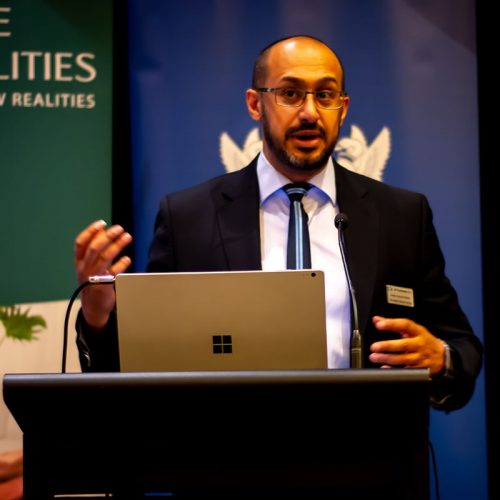
Dr Ali Fardinpour is an Immersive Technologies research scientist and the Founder and Executive Director of Wise Realities Institute for Healthcare Emerging Technologies Research, a health promotion charity focused on immersive technologies as therapeutic and educational tools. Ali has been conducting research on computer simulations and immersive technologies for more than a decade in education and healthcare. In 2017, Ali brought Healthcare Immersive Technologies into the spotlight for the first time in Western Australia. Ali is deeply passionate about helping those challenged by health issues through innovation and contributing to the future of healthcare, as a human right, to be equally accessible and affordable for all.rnu003cblockquoteu003eu003cstrongu003eu003cemu003eVirtual Reality – Applications and Possibilitiesrnu003c/emu003eu003c/strongu003eu003cemu003eThe practice of using Virtual Reality (VR) for the management of an array of conditions has increased in popularity over recent years, with more data and studies emerging to support its claim as therapeutic. Virtual reality offers an immersive simulation of a real-life situation and can be manipulated and controlled to make the environment therapeutic. VR is increasingly being investigated as an alternative to conventional options due to its controllability and replicability. It can be used in studies to simulate social situations or potentially anxiety-triggering events in a safe manner, to habituate the participant to these environments, allowing for the possibility of the development of skills necessary to manage these situations in real life. This talk will discuss different advancements and applications of VR in relation to autism, introduce a number of example experiences and discuss future opportunities in Western Australia.u003c/emu003eu003c/blockquoteu003e
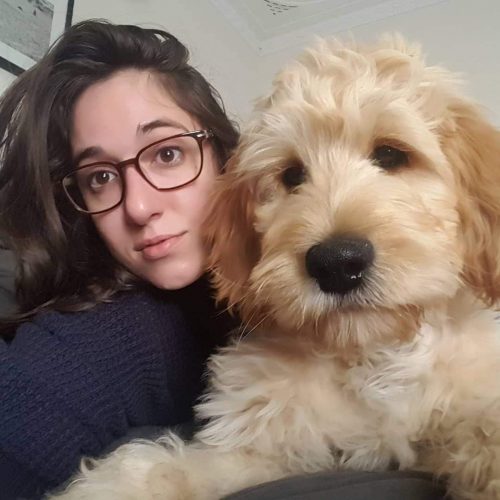
Ana Palacios has a background in the contemporary arts and after receiving an adult diagnoses of autism, she realised her art practice had emerged as a positive adaptation to the challenges of being neurodiverse. Starting at Spectrum Space as a volunteer in 2017, Ana began working as a visual arts facilitator before expanding her role further. She now mainly concentrates on peer work, development of positive identity, as well as development and facilitation of training and educational courses.rnu003cblockquoteu003eu003cstrongu003eu003cemu003eFor the Love of Tangents – Autism identity, culture and communityrnu003c/emu003eu003c/strongu003eu003cemu003eJoin the multiple neurodiverse Ana Palacios as she draws upon her work as facilitator of Spectrum Space’s course ‘Autism, Identity and Awareness for Neurodiverse Individuals’ and her own lived experience to take you on a brief, non-linear jaunt through her thought processes around reframing lived experiences in a way that supports the development of positive autistic identity while celebrating autistic community and culture. Ana touches on language, the shifting of paradigms and framing concepts, ableism, executive functioning fails and much more.u003c/emu003eu003c/blockquoteu003e
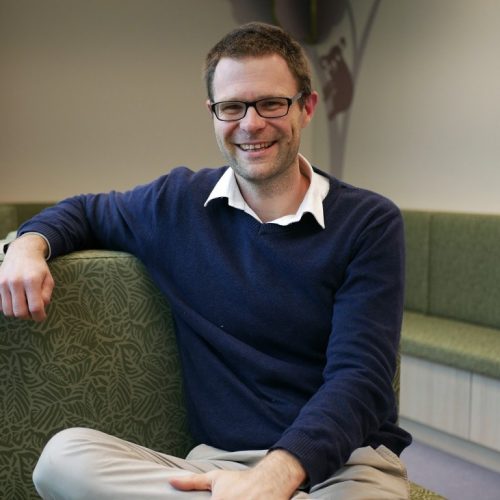
Andrew Whitehouse is the Angela Wright Bennett Professor of Autism Research and the Director of CliniKids at the Telethon Kids Institute. He is also Professor of Autism Research at The University of Western Australia, Research Strategy Director of the Cooperative Research Centre for Living with Autism (Autism CRC) and the current president of the Australasian Society for Autism Research.rnrnAt the Telethon Kids Institute he leads a large team that seeks to find new and innovative ways to help each and every child on the autism spectrum reach their full potential. Andrew has published over 250 peer-reviewed journal articles and attracted over $60 million in competitive research grants. He currently presents an internationally syndicated video series called ’60 Second Science”, which has had over 2 million views. He is an advisor to State and Commonwealth Governments on policies relating to children with Autism Spectrum Conditions. He chaired the committee that generated Australia’s first national guideline for autism diagnosis, and co-chaired the committee that developed Australia’s first national guideline for early therapies and supports for autistic children.rnrnAndrew has published one edited book with his twin-brother (Ben), and a popular science book that examined the science behind some of the myths of pregnancy and child development (Will Mozart Make My Baby Smart?). He has also been awarded a Eureka Prize for his research, and is the youngest fellow ever elected to the Australian Academy of Health and Medical Sciences. Prior to coming to the Telethon Kids Institute, Andrew was a Junior Research Fellow at the University of Oxford.rnu003cblockquoteu003eu003cstrongu003eu003cemu003eEvidence-based practice: Australia’s first national guideline for early therapies and supports to autistic children and their familiesrnu003c/emu003eu003c/strongu003eu003cemu003eEvidence-based practice is the backbone of safe, ethical and effective therapies and supports. In 2022, Andrew Whitehouse was asked to Co-Chair the development of Australia’s first national guideline for early therapies and supports to autistic children and their families. In this presentation, Andrew will describe the process for developing the guideline, and provide details of what the guideline includes.u003c/emu003eu003c/blockquoteu003e
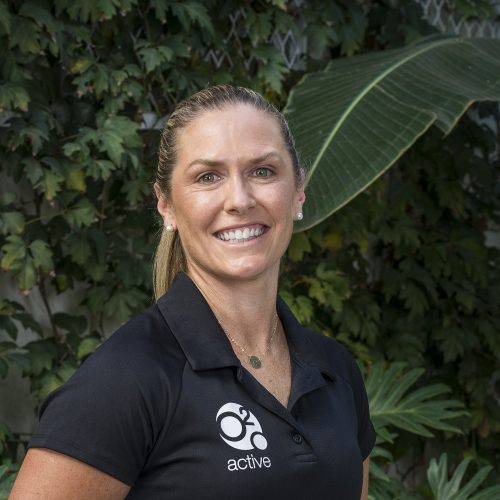
Founding director of O2 Active and exercise physiologist Caitlin Hunt has over 20 years of experience in the field working with a vast range of clientele in exercise physiology. She specialises in the delivery of exercise and lifestyle therapies for the prevention and management of chronic disease, injury and disability. She believes exercise physiology can be used as a therapy to not just improve physical capacity and health but to improve emotional regulation, confidence and community participation.rnrnPrior to O2 Active, Caitlin founded Silhouette Dance Studio and has more than 25 years of experience working in movement with youth and paediatrics. Exercise, movement and community sport have had a huge impact on her personally and she is passionate about enabling children, youth and adults to be involved. She believes everyone should have the opportunity to move better, feel good and be able to partake in everyday activities and community life.rnu003cblockquoteu003eu003cstrongu003eu003cemu003eBenefits of Exercisernu003c/emu003eu003c/strongu003eu003cemu003eExercise physiology improves quality of life by helping create a strong sense of purpose and self-fulfilment. It plays an important role in supporting participants to become more independent, improve their physical motor functions and mental health, enhance strength and fitness, build stronger confidence, and overall heighten their general wellbeing. It can also help to upskill and transition children, youth and adults so they can partake in community sport, recreation and activities with their peers and community and thus decrease social isolation.u003c/emu003ernrnu003cemu003eIn this presentation Caitlin will give practical tips on how to build simple exercises into the daily life for those who experience barriers to taking part, including students in primary and secondary schooling, youth and adults, including how to fit it all in in your busy lives. She’ll touch on how to encourage and increase involvement and confidence in community / school sport and movement in general and how you or your child can have a positive experience being physically active and leading a healthy lifestyle.u003c/emu003eu003c/blockquoteu003e
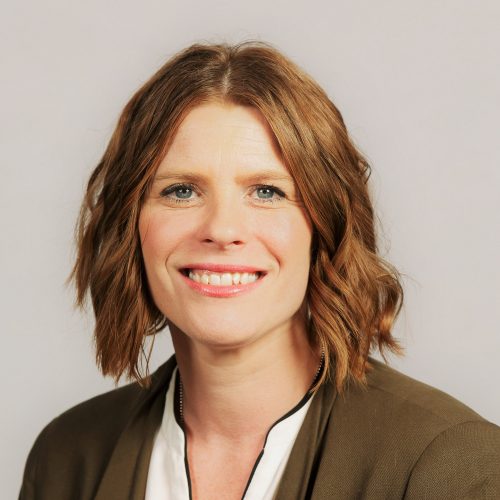
Cheryl Mangan is the Manager of Research Translation, Autism CRC, the world’s first national cooperative research effort focused on autism across the lifespan. With over 15 years in the not-for-profit sector, Cheryl has a wealth of experience translating research into evidence-based policy, programs and technology-based solutions. She has a proven track record of delivering effective and engaging products and programs that have been developed in partnership with the community including u003ca href=u0022https://www.inclusioned.edu.au/u0022 target=u0022_blanku0022 rel=u0022noopeneru0022u003einclusionEDu003c/au003e professional learning platform and co-leading myWAY Employability. Believing wholeheartedly that innovation begins with people, Cheryl is passionate about creating spaces and processes that empower individuals and communities to co-design their services and solutions.rnu003cblockquoteu003eu003cstrongu003eu003cemu003emyWAY Employability: Helping autistic young people plan and prepare for their working life, presented by Autism CRCrnu003c/emu003eu003c/strongu003eu003cemu003eExploring career options to find the right job can be overwhelming for some autistic individuals. u003ca href=u0022https://www.mywayemployability.com.au/u0022 target=u0022_blanku0022 rel=u0022noopeneru0022u003emyWAY Employabilityu003c/au003e, based on six years of research and evaluation, is an evidence-based online platform designed to help improve the self-determination of young autistic people and prepare for their working life. They are guided to create a vocational profile by identifying their interests, unique skills, how they learn best, and their sensory and social preferences for work environments. Possible careers are matched to their profile. The goal setting tool, creation of a support team, and plain language information articles guide next steps in planning transition to work. This presentation will provide an overview of the research behind myWAY Employability and show the audience how it can be used in self-discovery, career exploration and collaborative career planning.u003c/emu003eu003c/blockquoteu003e
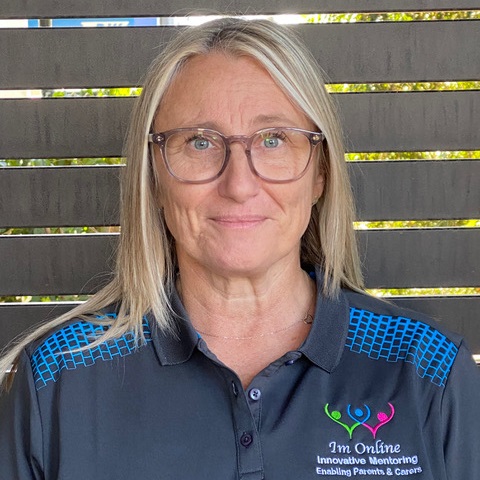
Deanne wanted to become a Mentor, so that she could not only have the knowledge to be able to help her ASD son get the best assistance possible, but to also help other parents in the same position. She had been wanting to get back into working after 14 years caring for her son and is excited to feel valued, to empower other parents and to be part of the dynamic team at Im Online.rnu003cblockquoteu003eu003cstrongu003eu003cemu003eNavigating the NDIS: Practical planning tips to get the most out of your planrnu003c/emu003eu003c/strongu003eu003cemu003ePresenting with Heather Tompkinu003c/emu003ernrnu003cemu003ePlanning and managing an NDIS plan can be challenging, and for ‘hidden disabilities’ such as autism it can be especially difficult to advocate for the inclusion of services needed to support that individual. Recent media reports of NDIS participants having their funding cut highlight a need for a consistent and effective approach when first going on the scheme, or in preparing for a plan review. In this presentation, lived experience presenters with expert knowledge of the NDIS will provide practical tips to simplify the NDIS processes and increase the understanding of the NDIS and its complexities, address the documentation and evidence needed, and what to do when your funding has been cut.u003c/emu003eu003c/blockquoteu003e
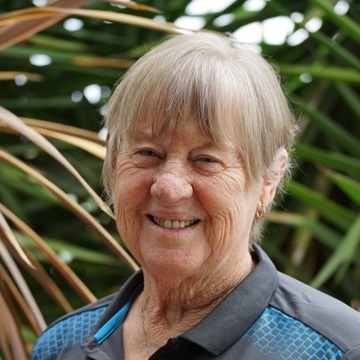
Before retiring Heather was a teacher for many years of students with a speech and language disorder, so has first hand knowledge and understanding of the challenges faced by parents and their children with a disability. She feels extremely fortunate to be working as a member of the Im Online Innovative Mentoring team, a supportive and collaborative team assisting people with their NDIS journey. That journey can be fraught with difficulties and be mentally taxing, and Heather finds her role as an educator, providing support to, and assisting clients with, their plans and simplifying the complex NDIS process, very rewarding in that she can assist people through all their challenges and share in their successes.rnu003cblockquoteu003eu003cstrongu003eu003cemu003eNavigating the NDIS: Practical planning tips to get the most out of your planrnu003c/emu003eu003c/strongu003eu003cemu003ePresenting with Deanne Piltonu003c/emu003ernrnu003cemu003ePlanning and managing an NDIS plan can be challenging, and for ‘hidden disabilities’ such as autism it can be especially difficult to advocate for the inclusion of services needed to support that individual. Recent media reports of NDIS participants having their funding cut highlight a need for a consistent and effective approach when first going on the scheme, or in preparing for a plan review. In this presentation, lived experience presenters with expert knowledge of the NDIS will provide practical tips to simplify the NDIS processes and increase the understanding of the NDIS and its complexities, address the documentation and evidence needed, and what to do when your funding has been cut.u003c/emu003eu003c/blockquoteu003e
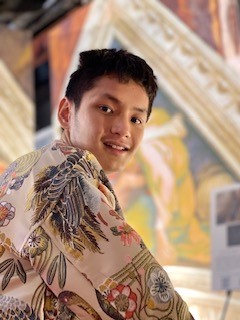
Jayelan is a young man with Autism who at the age of ten left a silent world behind. The introduction of letter board as a communication method was an epic leap in connecting Jayelan to the world around him. It gave him the chance to challenge preconceived ideas about his capabilities, and to reveal the strength of the voice within.rnrnAn experienced presenter, Jayelan has shared his story at the University of Melbourne, Curtin University, University of Western Australia, Notre Dame University, Fremantle Education Centre, City of Cockburn, and People with Disabilities WA Inaugural State Conference. In 2018, Jayelan received the Lions Children of Courage Award and in 2021, Jayelan had his first piece of writing published by Carers WA entitled, “The Silent World of Autism”.rnrnJayelan is currently studying Year 12 ATAR Mathematics and Human Biology, has his own blog, writes poetry and is working on writing his own book. He loves listening to pop music and dancing like no one is watching. A keen hiking enthusiast, Jayelan loves to appreciate nature and feel the awe of the earth interpreted through his senses.rnrnPassionate and tenacious, Jayelan is an emerging advocate who wants to ensure he, and other people with disability are given the opportunity to have their stories heard and celebrated.rnu003cblockquoteu003eu003cstrongu003eu003cemu003eJayelan’s Journey: Schooling u0026amp; communication in a non-verbal worldrnu003c/emu003eu003c/strongu003eu003cemu003eu0022Time and again, I get hurt and belittled by laughter at my attempts to speak, riled up at people’s lack of respect, and I feel like I’m less valid because I am non- verbal.u0022u003c/emu003ernrnu003cemu003eUntil relatively recently, it was presumed that non-verbal children were less capable and they have mostly been excluded from research. Although perceptions of non-verbal individuals may have changed in some places, there are still plenty of myths left to bust. In this presentation, Jayelan Lee describes what it is like having others presume your levels of ability and capability, and not being able to communicate what you want when you want. A fascinating insight into this young man’s mind, his presentation has the power to change perceptions and attitudes about a little known world.rnu003c/emu003eu003c/blockquoteu003e
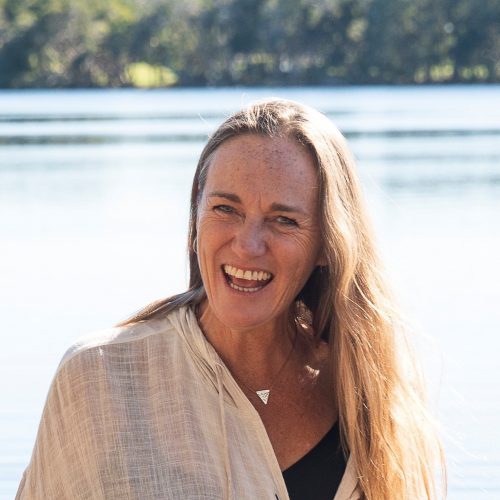
Jodi Rodgers is a qualified sexologist, counsellor and special education teacher.rnrnJodi has worked within the education and community sectors in both Australia and internationally and has extensive experience working with people with disability and diverse neurology across the life span.rnrnJodi established her private practice, Birds and Bees, after 25 years of working within the education, disability and sexuality fields. Birds and Bees specialises in delivering counselling services and workshops for people with disability with a focus on sexuality, sexual health and relationships; as well as delivering training for parents, carers and professionals to raise the community’s capacity in this sometimes-tricky area.rnrnJodi was featured on “u003cemu003eLove on The Spectrumu003c/emu003e” which was released on the ABC and globally on Netflix.rnu003cblockquoteu003eu003cstrongu003eu003cemu003eYEAH, NAH…The Complexity of Consent – u003cspan style=u0022text-decoration: underline;u0022u003ethis talk will be delivered live onlineu003c/spanu003ernu003c/emu003eu003c/strongu003eu003cemu003eConsent is a complex concept but an integral social rule to learn. The social skills and communication needed, to both give and to gain consent are a fundamental component of social skill development for all people, including people with autism.u003c/emu003ernrnu003cemu003eThis presentation links how the diagnosis criteria of autism, may impact on some people’s capacity in understanding consent and how the development of this understanding starts in early childhood and continues into adulthood.u003c/emu003ernrnu003cemu003eThe presentation will demonstrate the differing developmental stages and how consent can be taught across the lifespan.u003c/emu003ernrnu003cemu003eIt will also highlight how the Royal Commission into Violence, Abuse, Neglect and Exploitation of People with Disability and the Convention on the Rights of Persons with Disabilities, uphold the rights of people to make informed choice and the need for consent education.u003c/emu003eu003c/blockquoteu003e
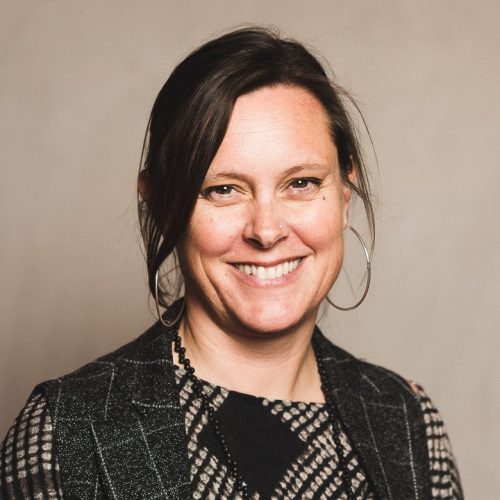
Maree Crabbe is co-founder and Director of the Australian violence prevention initiative, u003cemu003eu003ca href=u0022https://itstimewetalked.com/u0022 target=u0022_blanku0022 rel=u0022noopeneru0022u003eIt’s time we talkedu003c/au003eu003c/emu003e.rnrnShe is Co-Producer and Co-Director of the documentary films u003ca href=u0022https://itstimewetalked.com/resources/love-and-sex/u0022 target=u0022_blanku0022 rel=u0022noopeneru0022u003eu003cemu003eLove and Sex in an Age of Pornographyu003c/emu003eu003c/au003e, broadcast in 36 countries, and u003ca href=u0022https://itstimewetalked.com/resources/the-porn-factor/u0022 target=u0022_blanku0022 rel=u0022noopeneru0022u003eu003cemu003eThe Porn Factoru003c/emu003eu003c/au003e, broadcast in Australia. She is also author of u003cemu003eu003ca class=u0022ek-linku0022 href=u0022https://itstimewetalked.com/resources/in-the-picture/u0022 target=u0022_blanku0022 rel=u0022noreferrer noopeneru0022 aria-label=u0022In The Picture (opens in a new tab)u0022 data-rich-text-format-boundary=u0022trueu0022u003eIn The Pictureu003c/au003eu003c/emu003e – a resource to support secondary schools to address the influence of explicit sexual imagery.rnrnMaree has worked with young people – and on issues affecting young people – for over 25 years. She has developed and delivered programs focusing on sexual violence prevention, sexual diversity, pornography, sexting, and the prevention of sexually transmissible infections.rnrnMaree’s contributions to public conversations about young people, sexuality and pornography include television and radio interviews, and articles in academic and news media.rnu003cblockquoteu003eu003cstrongu003eu003cemu003ePorn is Not the Norm: Pornography, young people and autismrnu003c/emu003eu003c/strongu003eu003cemu003ePresenting with Wenn Lawsonu003c/emu003eu003cstrongu003eu003cemu003ernu003c/emu003eu003c/strongu003ernrnu003cemu003eSchools have a critical role to play in equipping students for healthy, respectful relationships. But they are competing with some powerful influences. Including porn.u003c/emu003ernrnu003cemu003eReadily available and aggressively marketed online, exposure to pornography is now mainstream. Consumption – particularly for young men – has become normalised. Pornography has become a default sex educator for many young people, with serious implications for their capacity to negotiate free and full consent, for mutual respect, sexual health, and gender equality.u003c/emu003ernrnu003cemu003eFor autistic young people, pornography’s influence can be even more challenging. Monotropism (being single minded), the key characteristic of autism, can make autistic young people particularly vulnerable to the impacts of pornography. The messages conveyed by pornography can be a source of confusion and concern, and shape unrealistic and unhealthy sexual understandings and expectations. At its worst, pornography exposure can increase the likelihood of autistic young people becoming a victim or perpetrator of a sexual crime.u003c/emu003ernrnu003cemu003eThis session seeks to support teachers and other interested professionals to understand pornography’s prevalence and influence, its implications for autistic young people, and how we can support them to navigate respectful, consenting and safe sexuality and relationships in this new reality.u003c/emu003eu003c/blockquoteu003e
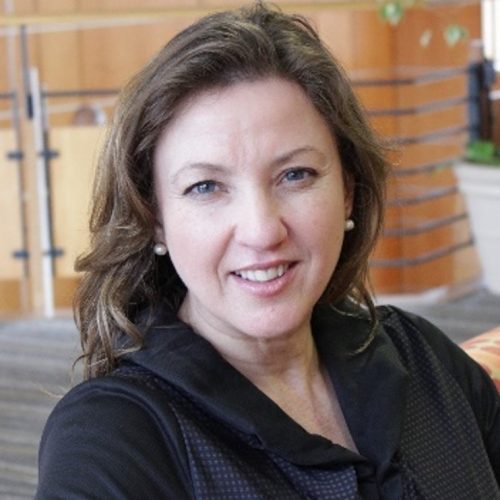
Marina Ciccarelli is an Associate Professor in the Curtin School of Allied Health at Curtin University in Perth, Western Australia. She has worked as an occupational therapist for over 30 years with a focus on assisting people living with disability to gain employment and facilitating safe return to work of injured workers, by adapting environments to meet individuals’ needs. Marina leads research projects at the Cooperative Research Centre for Living with Autism (Autism CRC) focused on assisting young autistic individuals to plan and prepare for what they will do after school and improve their employability. She has a keen curiosity about how emergent technologies can help individuals participate in important everyday activities, and is the co-lead on the myWAY Employability online resource to support autistic individuals to plan for their place in society.rnu003cblockquoteu003eu003cstrongu003eu003cemu003emyWAY Employability: Helping autistic young people plan and prepare for their working life, presented by Autism CRCrnu003c/emu003eu003c/strongu003eu003cemu003eExploring career options to find the right job can be overwhelming for some autistic individuals. u003ca href=u0022https://www.mywayemployability.com.au/u0022 target=u0022_blanku0022 rel=u0022noopeneru0022u003emyWAY Employabilityu003c/au003e, based on six years of research and evaluation, is an evidence-based online platform designed to help improve the self-determination of young autistic people and prepare for their working life. They are guided to create a vocational profile by identifying their interests, unique skills, how they learn best, and their sensory and social preferences for work environments. Possible careers are matched to their profile. The goal setting tool, creation of a support team, and plain language information articles guide next steps in planning transition to work. This presentation will provide an overview of the research behind myWAY Employability and show the audience how it can be used in self-discovery, career exploration and collaborative career planning.u003c/emu003eu003c/blockquoteu003e
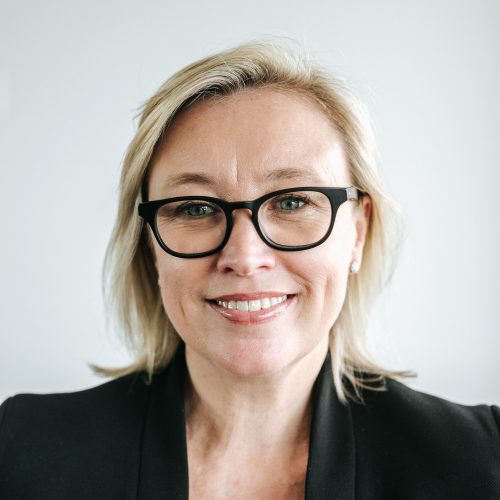
Nicole Rogerson is one of the nation’s leading spokespersons for the awareness and understanding of autism. She is the founding director of Autism Awareness Australia and is an experienced director, government advisor and senior executive.rnrnFor more than 20 years, she has been advising on public policy, providing early intervention services and advocating for the inclusion, acceptance and understanding of individuals with autism.rnrnA passionate disability advocate and social policy campaigner, she is a frequent public speaker on these issues and is regularly advocating for families with children on the spectrum. She is deeply committed to improving the lives of individuals with developmental disabilities and their families.rnrnNicole has two sons, the eldest of whom is on the autism spectrum.rnu003cblockquoteu003eu003cstrongu003eu003cemu003eState of Autism in 2022rnu003c/emu003eu003c/strongu003eu003cemu003eMuch has changed in the world of autism over the last twenty years in Australia. Awareness, research, advocacy and NDIS have been game changers. While the rollout of the NDIS is well underway, there are still issues we are a long way from ironing out. Is life in Australia in 2022 better for individuals with autism and their families than it was previously? Nicole combines her experiences of being a mother, a service provider, a businesswoman and an advocate to report on what changes have occurred in autism and what challenges lie ahead.u003c/emu003eu003c/blockquoteu003e
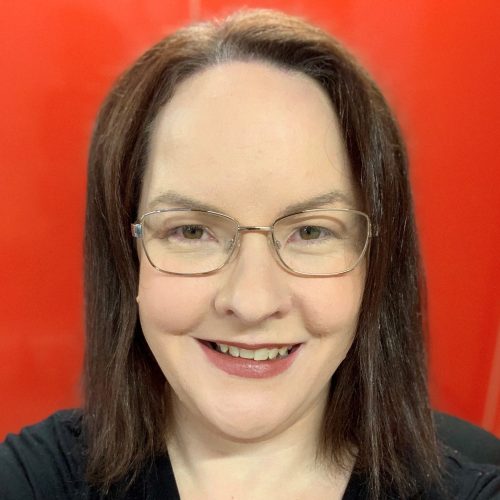
Raelene is an Autistic and ADHDer, Educational Developmental Psychologist, and the Director of Okey Dokey Childhood Therapy, a large paediatric allied health practice in Australia that she runs with her husband, Andrew, who is also Neurodivergent. She has extensive experience working with Neurodivergent children and their families providing educational, social/emotional and parenting support. Raelene is also the mother of three Autistic children and draws on both her personal and professional experience to provide support and guidance to children and families.rnrnRaelene regularly presents webinars for parents and professionals on topics related to supporting Neurodivergent children in the classroom and in other settings, and has presented at international conferences in New York, Macau, Singapore, Prague, Edinburgh, and across Australia.rnrnRaelene is the author of 4 books published by Jessica Kingsley Publishers in London, with her fourth book “PDA in the Therapy Room: A Clinician’s Guide to working with children with Pathological Demand Avoidance” released in 2021.rnrnRaelene is passionate about supporting Neurodivergent children to understand and accept who they are — and to empower them to be themselves in a society that still has a long way to go in celebrating difference.rnu003cblockquoteu003eu003cemu003eu003cstrongu003eAdapting Classroom Environments to Accommodate the Sensory and Processing Needs of Studentsrnu003c/strongu003eIn this presentation, attendees will learn about the sensory and processing differences that are often experienced by Autistic students, and develop an understanding of how these differences can impact on learning, participation, behaviour and communication in the classroom. Attendees will then be guided in how to identify possible sensory and environmental triggers for students, and learn what they can do to accommodate sensory sensitivities and needs to create more inclusive and productive learning spaces for all students.u003c/emu003ernrnu003cemu003eu003cstrongu003eSetting Students up for Success – Modifying learning activities for Autistic children in mainstream settingsrnu003c/strongu003eIn this presentation, attendees will gain an understanding of the key aspects of learning tasks which can frequently be challenging for Autistic students, and how these challenges might present in the classroom. Then attendees will be provided with guidance around how to build skills and accommodate these challenges to make the curriculum and certain learning tasks more accessible for students. Examples of specific modifications which can be utilised across a variety of grade levels and subjects will be provided.u003c/emu003eu003c/blockquoteu003e
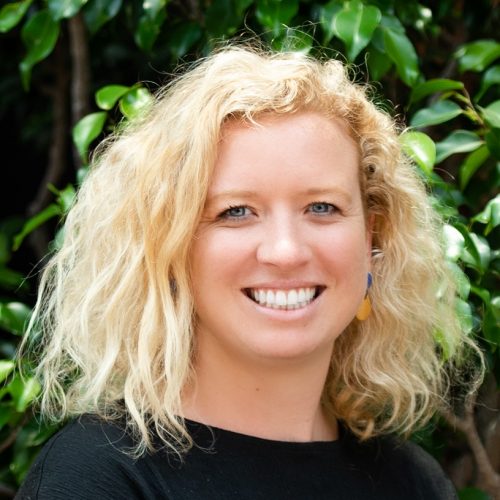
Rebecca is an occupational therapist by background and has worked alongside neurodiverse children and their families within early years, primary and high school settings. She is passionate about strengthening the relationships between the team working alongside autistic children, as well as helping young people understand their sensory preferences, finding joy within daily activities and developing independence in activities that are meaningful to them. Currently, Rebecca is the WA State Coordinator for Positive Partnerships, a government-funded project working together with families, carers and schools to provide current, relevant and evidence-informed information through workshops and online resources. Within this role, she travels throughout WA delivering free workshops for families and schools who support an autistic student. Having grown up in a country area herself, this aligns strongly with Rebecca’s belief that everyone should be able to access quality evidence-informed resources and information, no matter where they live.rnu003cblockquoteu003eu003cstrongu003eu003cemu003eCreating and Sustaining Positive Partnershipsrnu003c/emu003eu003c/strongu003eu003cemu003e“When we give our heartfelt care and commitment, time to listen and learn, and space for parent knowledge to be shared alongside our own knowledge, what we get is stronger schools, families and communities”u003c/emu003e Pushor, 2011rnrnu003cemu003eJoin Rebecca Wahlsten as she explores the importance of everyone having a shared understanding when supporting autistic children. Rebecca will discuss how we can strengthen positive partnerships between the home, school and the community and ensure that the young person has the opportunity to share their thoughts and perspectives.u003c/emu003ernrnu003cemu003eThe session will also explore the power dynamics that can exist in this relationship and identify ways to improve communication and collaboration.u003c/emu003eu003c/blockquoteu003e
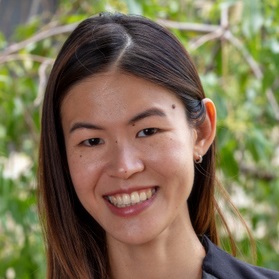
Dr Shu Yau is a Lecturer in Developmental Psychology at Murdoch University, Fellow of the Higher Education Academy and Director of the Child Cognition and Autism laboratory. She works closely with families and clinicians to conduct research tailored to their specific needs, and to improve understanding of nonspeaking Autism. She has published journal articles and book chapters on child neuroscience and Autism and won funding to conduct participatory research with the Autism community in both Australia and the UK.rnrnPrior to taking up a lectureship in Western Australia, Shu was a Marie Curie Postdoctoral Fellow, an Assistant Professor at the University of Bristol, UK and co-director of the Bristol Autism Research Group, a large network of scientists and practitioners in South West England. Currently leading the Child Cognition and Autism Lab at Murdoch University, Shu is passionate about socially valid research and making research accessible through public engagement and free training. While nonspeaking individuals are traditionally excluded in research, her team takes pride in their co-design research methods, where voices of individuals with Autism (in all forms) and their allies are weaved into all aspects of their work.rnu003cblockquoteu003eu003cstrongu003eu003cemu003eUnderstanding Community Needs to Reshape Non-verbal Autism Researchrnu003c/emu003eu003c/strongu003eu003cemu003eUp to 40% of individuals on the Autism Spectrum remain nonspeaking or minimally verbal despite intervention. A large majority have complex communication needs and rely on Augmentative and Alternative Communication (AAC) to communicate. Shu will reveal some underlying barriers and facilitators of AAC use in WA based on her lab’s latest research and discuss the free communication workshops her lab co-designed with the Autism community, tailored to the needs of parents, clinicians and educators who support nonspeaking children and young adults on the Autism Spectrum. This talk will also touch on brain mechanisms in nonspeaking Autism, the evidence behind AAC, and possible implications for practice, policy and the broader society, to better support nonspeaking autistic individuals.u003c/emu003eu003c/blockquoteu003e
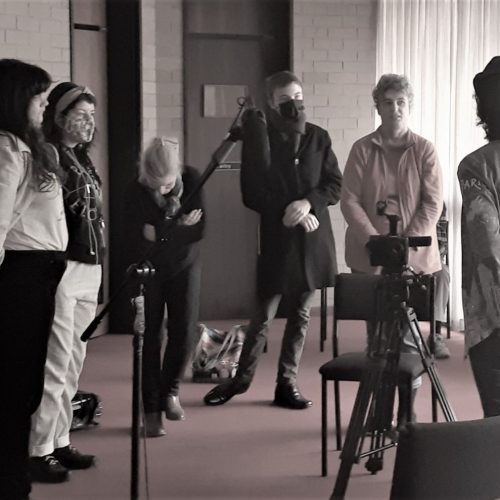
With the support of Lotterywest and under the guidance of Suzanne Ingelbrecht, Spectrum Space formed a company to explore whether Shakespeare can be made relevant to the neurodivergent community. Suzanne, an award-winning Australian playwright, director of the professional theatre ensemble Fragmented Artists, and Research Associate at Curtin University, has worked with Company members Jess Dening, Jen Harland, Isabel Grace, Henry Wilson, AJ Sheehy, Honor Boekeman, Trudi-Ann Gribble and Charlotte Paterson over a number of months on both a script and a film showcase of the re-imagined play. The project enables individuals to explore their creativity through writing, acting, costume making, make-up and filming, and showcases their talents in these disciplines. All the Company members have invested their free time and lived experience expertise to the production.rnu003cblockquoteu003eu003cstrongu003eu003cemu003eShakespeare Reimagined: A Midsummer Night’s Dream from a neurodivergent perspectivernu003c/emu003eu003c/strongu003eu003cemu003eA Midsummer Night’s Dream is one of William Shakespeare’s best loved and most performed plays. Spectrum Space’s Shakespeare Company, guided by Suzanne Ingelbrecht and supported by Lotterywest, have reimagined and rewritten the play from a neurodivergent perspective, using Shakespeare’s characters and act/scene structure as the starting point, and then recreating it as a journey towards celebrating diversity. The project enabled individuals to explore their creativity through writing, acting, costume making, make-up and filming, and showcases their talents in these disciplines. Premiering on 5 November 2022 at Fremantle Arts Centre, this presentation from the Company will explore the project, their learnings and give insights into the creative process.u003c/emu003eu003c/blockquoteu003e
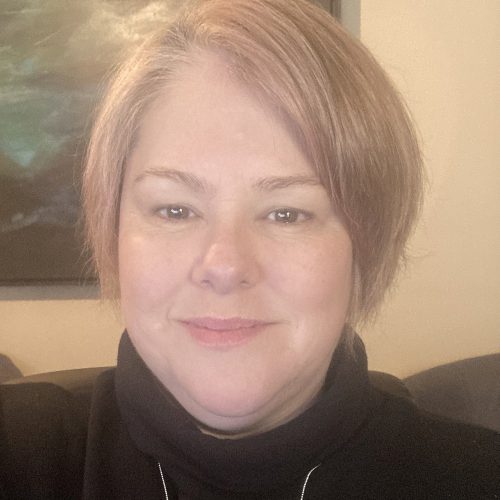
Tammy is an experienced trainer, coordinator and project officer and has worked in the community sector for fifteen years. She currently works as a project officer for The Autistic Self Advocacy Network of Australia and New Zealand and as a Project Officer for Autism CRC. Tammy is the therapeutic consultant for the Your Story Disability Legal Support Advisory Group, a member of the JFA Purple Orange Co-Design Council and a Board member for The Autistic Realm Australia. She is also autistic, an ADHD’er and Dyslexic with Auditory Processing Disorder and multiple chronic health issues.rnu003cblockquoteu003eu003cstrongu003eu003cemu003eThe Impact of Disclosure on Relationshipsrnu003c/emu003eu003c/strongu003eu003cemu003eThis presentation explores how disclosure can impact on existing and developing relationships. For many individuals, autism is experienced as a ‘hidden disability’, which places the onus on the person to disclose when navigating relationships with family, friends, work colleagues and potential romantic partners. The pressure to explain our unique thinking styles and sensory processing can be subtle or overt as the people around us try to find an explanation for our differences.u003c/emu003ernrnu003cemu003eLate diagnosis can create distinct challenges as the individual processes what this will mean for them and reframes past life experiences. I will refer to my own experiences as an autistic woman diagnosed at the age of thirty-nine and parent to autistic adults. Tammy will refer to a small research study she undertook in 2019 which explored disclosure in the workplace from the perspectives of autistic workers and their non-autistic colleagues. The research will be juxtaposed against her own experiences with relationships in paid employment prior to and following her choice to disclose. Finally, she will reflect on the power of leadership programs and peer role modelling in strengthening identity, building community connection, and promoting authentic relationships.u003c/emu003eu003c/blockquoteu003e
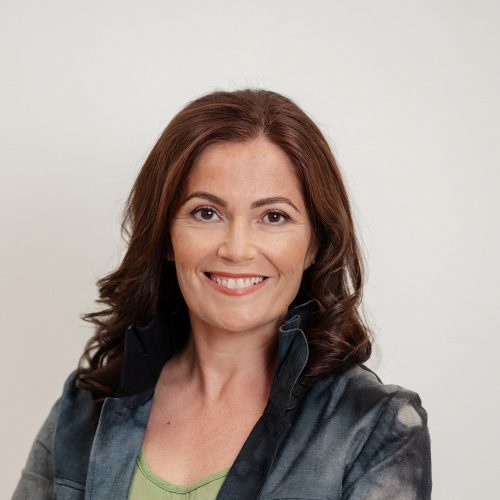
Dr Theresa Kidd is a clinical psychologist, research fellow and the clinical director of The Kidd Clinic, a private psychology group practice focussed on Autism Spectrum Conditions u0026amp; Anxiety in Perth. Theresa is committed to helping neurodivergent individuals of all ages to minimise their challenges, increase their strengths and to achieve their life goals. Having many neurodivergent family members herself, she is also passionate about increasing family quality of life by assisting families to be as strong and healthy as possible.rnrnWith a passion for intervention research, she embarked on a PhD which focused on using family-based cognitive behavioural therapy (CBT) to reduce anxiety in autistic adolescents. Concurrently, she co-developed and managed the Curtin University Specialist (peer) Mentoring Program to support autistic university students to successfully engage in tertiary settings. Following, she embarked on a post-doctoral research fellowship with Macquarie University where she coordinated a national trial to reduce anxiety and bullying victimisation in children.rnrnIn addition to her clinical and research work, and supervising other psychologists, she regularly presents to parents and professionals on Autism and co-occurring mental health problems. She has co-authored several articles and manuals related to Autism and has recently written a book, u003cemu003eHelping Autistic Teens to Manage their Anxietyu003c/emu003e.rnu003cblockquoteu003eu003cstrongu003eu003cemu003eSupporting Children and Adolescents with a PDA profilernu003c/emu003eu003c/strongu003eu003cemu003ePathological Demand Avoidance (PDA) has been identified as a profile that sits within the autistic population and is described as an overwhelming anxiety driven need to resist everyday demands and requests. Although children in general may try to avoid demands, children with a PDA profile demonstrate extreme avoidant behaviours usually associated with a loss of control and feelings of panic. Drawing upon research and clinical experience, the key characteristics of PDA, clinical identification of this profile, and an overview of how to effectively support these young people will be provided. With engagement in education, therapy, and the community often difficult, Theresa will provide practical strategies to assist with increasing engagement across these important areas.u003c/emu003ernrnu003cstrongu003eu003cemu003eHelping Autistic Teens to Manage Their Anxietyrnu003c/emu003eu003c/strongu003eu003cemu003eBased on Theresa’s recent book of the same title, this presentation outlines the co-occurrence of anxiety and autism and highlights specific anxiety triggers. In addition, the latest research and application of Cognitive Behavioural Therapy (CBT), Acceptance and Commitment Therapy (ACT) and Dialectical Behaviour Therapy (DBT) for anxious autistic teens will be provided. Theresa offers parents and professionals practical strategies to increase therapeutic engagement and assist autistic teens to manage their anxiety symptoms.u003c/emu003eu003c/blockquoteu003e
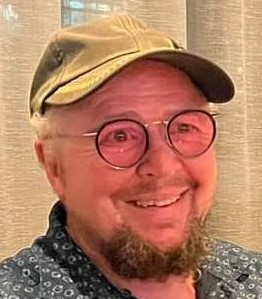
Dr. Wenn Lawson is an autistic researcher (PDAer), has three autistic offspring and three autistic granddaughters. Wenn is also a lecturer, consultant, advocate, and poet, sharing his experiences for almost three decades.rnrnWenn is published internationally, is an Associate Researcher with Curtin University (WA), and Macquarie University, NSW; Tutor Practitioner with Birmingham University (UK), a Board member for Autism in Adulthood, and the Australian Research Council, Ambassador for I CAN (Autistic Youth Advocacy) has a Youtube channel and u003ca href=u0022http://www.wennlawson.comu0022 target=u0022_blanku0022 rel=u0022noopeneru0022u003ehome pageu003c/au003e.rnrnIn 2008 he won 4th place as Victorian Australian of The Year, in 2017 he presented to the United Nations on matters of autism and ageing, and in 2021 he won the Lesley Hall, disability leadership lifetime achievement award. Wenn is passionate about all things LGBTQIA+ and autism.rnu003cblockquoteu003eu003cstrongu003eu003cemu003ePorn is Not the Norm: Pornography, young people and autismrnu003c/emu003eu003c/strongu003eu003cemu003ePresenting with Maree Crabbu003c/emu003eu003cstrongu003eu003cemu003ernu003c/emu003eu003c/strongu003ernrnu003cemu003eSchools have a critical role to play in equipping students for healthy, respectful relationships. But they are competing with some powerful influences. Including porn.u003c/emu003ernrnu003cemu003eReadily available and aggressively marketed online, exposure to pornography is now mainstream. Consumption – particularly for young men – has become normalised. Pornography has become a default sex educator for many young people, with serious implications for their capacity to negotiate free and full consent, for mutual respect, sexual health, and gender equality.u003c/emu003ernrnu003cemu003eFor autistic young people, pornography’s influence can be even more challenging. Monotropism (being single minded), the key characteristic of autism, can make autistic young people particularly vulnerable to the impacts of pornography. The messages conveyed by pornography can be a source of confusion and concern, and shape unrealistic and unhealthy sexual understandings and expectations. At its worst, pornography exposure can increase the likelihood of autistic young people becoming a victim or perpetrator of a sexual crime.u003c/emu003ernrnu003cemu003eThis session seeks to support teachers and other interested professionals to understand pornography’s prevalence and influence, its implications for autistic young people, and how we can support them to navigate respectful, consenting and safe sexuality and relationships in this new reality.u003c/emu003ernrnu003cstrongu003eu003cemu003eAutism, Mental Health and Wellbeingrnu003c/emu003eu003c/strongu003eu003cemu003eTo tease out mental health issues from autistic issues, as well as recognise how to build mental fitness as autistic people, is hard. Overshadowing is a constant issue as autism rarely travels alone, and has many cousins. Yet, it’s so important to interlace a neurodiversity affirming lens with DSM-5u0026#x2122; diagnostic criteria. The interplay between poor mental health and autism and the impact of unmet needs for autistic individuals is far too often overlooked. It’s also important to note how autism presents differently in different genders. The impact of a diagnosis in adulthood can lead to self-injury, employment and relationship problems, mental health issues including suicidality and, as mental health professionals we need to understand this. This talk aims to address the above.u003c/emu003ernrnu003cstrongu003eu003cemu003eAutism and Intersectionality: Genderrnu003c/emu003eu003c/strongu003eu003cemu003eAutism means having a brain and mind set impacted by being monotropic. Monotropism (single focused attention) means we develop passionate interests. Such interests can capture our attention completely leaving no spare attention for other things.u003c/emu003ernrnu003cemu003eGender and sexuality are different; gender refers to our identity and how we perceive ourselves and is based within the neurological system, whereas sexuality is physiological and includes biological functions of the reproductive system as well as sexual behaviour.u003c/emu003ernrnu003cemu003eBoth gender and sexuality may be experienced differently by the autistic population when compared to the allistic (non-autistic) population. Because in autism our brain leads us to be single focused and not traditionally bound to being socialised in ways the allistic population experiences, this will dictate to all areas of our lives. This obviously has implications for gender and sexual development, comprehension and experience.u003c/emu003ernrnu003cemu003eThe idea that males and females experience sexuality and gender differently in autism, compared to the allistic population, is not new but, what will this mean for diagnosis, individual development of sexual and gender identities as well as how to support this diverse population?rnu003c/emu003eu003c/blockquoteu003e